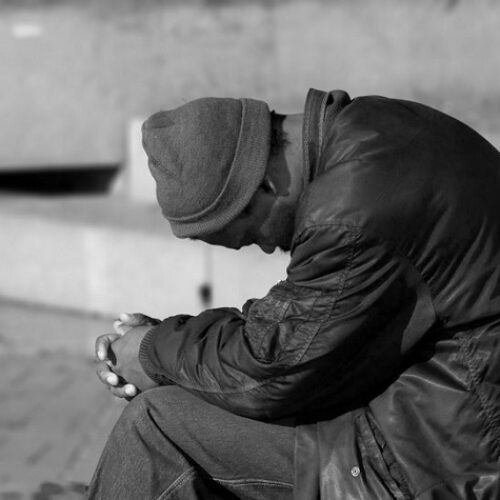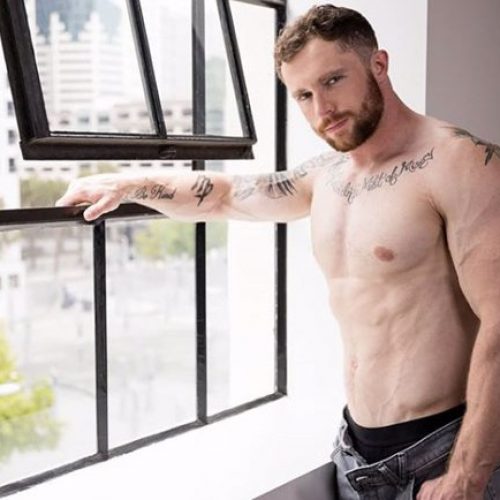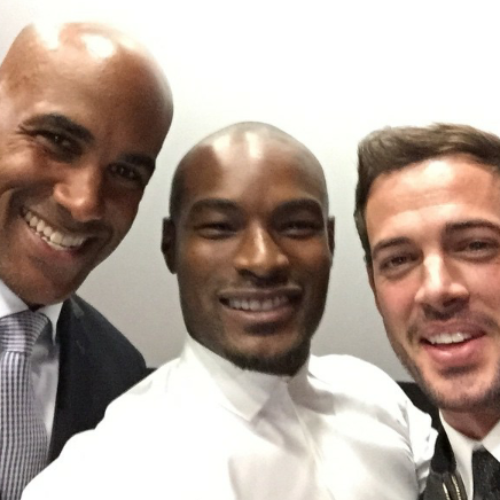Chinelo Okparanta Gets Candid About Her Novel, ‘Under the Udala Trees’
I first heard about Ms. Okparanta’s novel earlier this year and the title Under the Udala Trees struck me, mostly because the udala fruit is one of my favorite seasonal fruits and my hometown also derived its name from the same tree. So it holds some sort of sentimental value for me.
Then I read the synopsis for the book and was blown away. Thereafter, I desperately sought the novel until I found it online. I remember staying up all night to read the novel, and when I finished, I had to take a few hours to process the various emotions I was feeling. Chinelo is clearly a star, one with a strong voice which she is not afraid to use. I tracked down her collection of short stories, Happiness Like Water as well, and I ended up reaching out to her to answer a few questions, which she graciously agreed to do.
So here is a short interview that I conducted with Ms. Okparanta:
1. Your novel, Under the Udala Trees, took on the horror of the civil war without focusing on the war or its specifics. The war essentially served as a backdrop for the story you told. Were you however at any point concerned that the civil war would consume the story you were telling? That people will for instance be distracted from the story itself and focus on the war and things that led to it, especially now that ethnic sentiments are threatening the unity of Nigeria?
CHINELO: The setting of war was natural to the story I wanted to tell. My character was born about a decade before the Nigeria-Biafra civil war. The story starts during the Nigeria-Biafra civil war. It would have been unrealistic and unreasonable for me to write the novel without acknowledging that a war was going on during that time period, and that the war was in fact the impetus for my protagonist to be sent off. Many war stories are also love stories, so, no, I wasn’t worried that people would be distracted by the war. They should be distracted by it – to the point that it becomes more than just a distraction. After all, this is a novel about wars. Even after the civil war ends, the novel continues to speak to different forms of “war” within the Nigerian context: personal/internal “wars”, “wars” amongst the tribes, “wars” between mothers and daughters, “war” against the LGBTQ community, etc. As for the civil war in particular, the impact of the Nigeria-Biafra war is felt even today, decades later: Ethnic disputes and ethnic “othering” continue to this day. Unfortunately, tribalism is alive and well in Nigeria. Sharp readers, or those aware of the more contemporary history of cultural relations in Nigeria, will catch the instances during which the novel speaks to these issues. They will also understand the ways in which the war exacerbated these issues.
2. In your novel, you lifted the veil on human sexuality, telling stories about same sex relationships which are illegal in Nigeria, punishable by jail terms and in some cases death. Did you consider what the response of your Nigerian audience will be and how the book will be received here?
We are human beings. Many human beings have sex. Some even enjoy it. It seems to me that many problems can be solved if we learn to talk openly, without shame, and of course, respectfully about sex. Particularly LGBTQ sex, which has been considered taboo for too long. There’s a way in which transparency – which is also to say, visibility – renders topics and circumstances no longer taboo.
I considered how the book would be received, yes. Some of the stories in my collection were not well-received by Nigerians due to the stories’ LGBTQ contents and due to the Nigerian community’s strong anti-LGBTQ sentiments. I expected this would be true of the novel as well. I know many people who have slammed the novel just based on its lesbian theme. But I’m not so naive not to realize that many of those who most publicly condemn certain books are also those who most avidly flip through the pages in private, devouring with pleasure the contents of the story.
3. What I particularly find interesting is that you put a human face on homosexuality, which is what many people tend to overlook; the fact that gay people are humans and should have rights like everybody else. However I was also pleased that you chose to tell stories about gay women, because it’s almost as if when there are discussions around homosexuality it tends to focus on the men only. So did you deliberately prefer to tell stories about gay women and not just gay people in general?
I’m open to telling all sorts of gay stories – gay men and gay women, those a little bit gay and those a lot gay, gay happy and gay sad, etc.
4. Do you think religion is a good thing in our world today? Would the world be better off without religion and the restrictions it places on human interactions?
It seems to me that many of us like to be told what to do, how to act. Humans, by nature, seek out guidance. Furthermore, we like to believe in something, whether a supreme God or many gods or something more spiritual than godly. This is the reason for things like religion (this is also the reason for academic institutions and other organizations). Where religion is concerned, it is good in the sense that it gives people something to believe in, a set of codes to live by. Without religion, we might be living in more of a jungle of a world – a far greater number of people roaming the world with no moral compass at all. But then there are those people who would argue that religion is the bane of human existence. Which, it seems to me, is also true.
5. Finally on a lighter note, if you were to have a dinner party, which five people would you invite and why?
I’d invite my immediate family – my mom, two sisters and my brother. That takes care of four. A family affair. The fifth is a hard one. I might invite my only living grandparent, my mother’s mother. But she doesn’t really do dinner parties. But I might invite her all the same. Not to be greedy, but may I invite a sixth person? Because I’m too tired these days to cook, so I’d very much like to invite a sixth person – a proper Nigerian cook, to make us proper isi ewu, or maybe some good ofe oha and poundo. (I personally would be fine with good Nigerian jollof and some fried plantain on the side. Nigerian jollof, of course, because everyone knows Nigerian jollof is chief among jollofs ;-). )
About author
You might also like
Is There Any Justification For Somebody Being Kito And Victimizing Gay People?
Is the presence of hardship in a person’s life an excuse for him to turn around to victimize his fellow human being as a means of creating a better life
Porn star Markie More quits, says porn is evil
Adult film performer, Markie More is once again retiring from porn. “I’ve decided that I’m officially done with the adult industry,” he tweeted. “If you’re wondering, I’ve quit because I
Photos: Different Shakes Of Ice Cream
The movie, Addicted, starring amongst other Hollywood stars Tyson Beckford, Boris Kodjoe and William Levy (watch Single Ladies Season 2 and Jennifer Lopez’s I’m Into You music video for this dude










22 Comments
Absalom
September 12, 05:35Interviewer no get name??
Façade
September 12, 07:47He has been ranting about under the udala tree and loves jollof rice so much, hmmm… I wonder who that is **inserts a pensive face**
Absalom
September 12, 07:58? ? ?
Tiercel de Claron
September 12, 11:53Call him by name nah
ambivalentone
September 12, 06:58LOOOOOOOL Bitch!!! Basically, we who condemn sonething too vocally loves that sonething too particularly and a subtle shade at Ghanaians? Only God can judge u o.
Jaja
September 12, 07:04Terrific. Terrific. Great of you to get this exclusive from Chinelo. Good that you’ve discovered her writing. Chinelo, by the way, is The Other Great Igbo Female Storyteller, after you-know-who. Please read up about her. She’s THE major voice for LGBTQ stories in Nigerian fiction. Hopefully, you can expand and get our lesbian sisters to join us here. If the misogynists here wouldn’t be so disrespectful.
Brian Collins
September 12, 07:51I like her already, going to look for her stories. And that Jollof rice shade was to on point. Made me laugh.
z
September 12, 07:52how can I get a soft copy of her work?
Pink Panther
September 12, 08:21Email me. I’ll get it to you.
Tiercel de Claron
September 12, 11:58Me too,P
Make all that ‘noise’ on my timelines end,abeg
posh666
September 12, 16:04Sister pinky I will really love her books too pls drop ur email so I can contact u
Girl James
September 13, 06:30Pink panther, whats your email please, I would like to read the book?
Pink Panther
September 13, 08:32It’s pantherptb@yahoo.com
Hilanzok
January 26, 08:13I want to send a story to your mail, can I?
Dennis Macaulay
September 12, 09:07Best book I read this year
#DennisRecommends
And by the way, I think Chinelo just ended the Jollof wars!
*argue with your tomatoes*
Rapum
September 12, 09:29” But I’m not so naive not to realize that many of those who most publicly condemn certain books are also those who most avidly flip through the pages in private, devouring with pleasure the contents of the story.”
This is the word of the Lord.
Bloom
September 12, 11:52Thanks be to God.
Bloom
September 12, 11:55Why did she state something so painfully obvious? Nigerian jollof is nobody’s mate.
posh666
September 12, 16:06BTW does anyone have the Jude Dibia’s in your shadows too?if yes kindly drop ur mail pls
Dennis Macaulay
September 12, 18:11“Walking with shadows” actually and it has gone out of circulation. I don’t think there was even an Epub
Get in touch with the people at TIERS and see if they have any left
posh666
September 12, 18:25Thank u
Quinn
December 23, 13:14Praise for the work mis chinelo she took homophobes to the mud… reading that book you see all their “great” replies on LGBT shredded to pieces by a innocent 12 years old, and in the simplest way.. mis chinelo is a winner